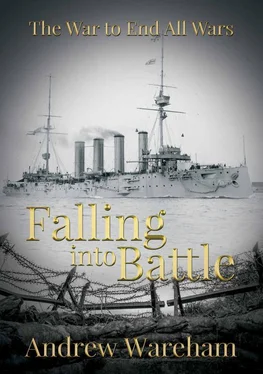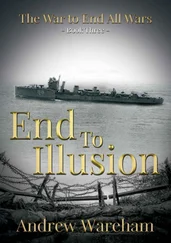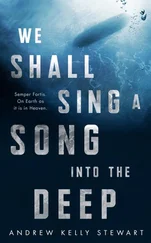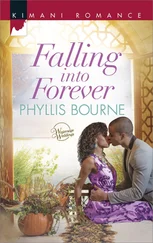Smithers scrambled to his feet, dropping the mug of black tea he had been distastefully sipping.
“Well, you don’t have to be rude to me, you know! No need for that! Where are my men?”
“Find out! You should know!”
Richard scowled as Smithers made his way along the section of hedgerow occupied by his half of the company. He turned back to his own platoons, walked across to Sergeant Grace who was peering through a gap in the hedge
“All well, Sergeant?”
“Nothing in sight, sir. Shook up young Mr Smithers, did you, sir? Good thing, too! Close to letting his men down, he was. Don’t know what’s right yet, not like you, sir. Company has got eighty rounds a man, sir. Two or three hours of hard fighting will use most of that up, sir.”
“I’ll speak to Captain Platt… The ammunition would be on the wagons, would it?”
“Generally speaking, yes, sir. And we ain’t seen the wagons since yesterday morning.”
“That will be for the colonel to deal with, Sergeant. I can’t. I’ll speak to Captain Platt, see if he can gee the colonel up.”
“Sort of remind him, like, sir. Mug of tea for when you come back, sir?”
“Please.”
Richard returned to Platt.
“Ammunition, Captain. My Sergeant Grace is worried that we don’t have rounds for a sustained action.”
“I’ll speak to the Adjutant – that’s his sort of thing, you know, Baker. He ought to know what’s in hand.”
The tea was appalling. Black, unsweetened and tasting of tar from the fenceposts it had been boiled over.
“Good stuff, sir. A pint of this and you’ll face anything Kaiser Bill can throw at you.”
“Only if I live long enough, Sergeant Grace. Safer than water from the stream, I suppose.”
“So it is, sir. Runner coming, sir. Headquarters platoon, sir. From the colonel. Just spoken to Captain Platt, sir.”
A minute and the private saluted.
“Colonel’s compliments, sir. Distant cavalry, to the east, sir. With lances, sir.”
“Thank you.”
The runner disappeared, back to the colonel for his next task. Richard watched him go, wondering why the colonel had found it necessary to send the message.
“British cavalry not got lances no more, sir. Must be Germans. Might be they could roll us up from the east, sir. On the open flank.”
“No defences to the right, Sergeant Grace.”
“No, sir. Might be the half company could fall back into the woods, sir. Lancers ain’t going to do much in trees, sir.”
“Rifles will, though. Pass the word that we are to take firing positions in the woodland if we are driven back. Don’t run out into open country.”
“Don’t exactly expect to be pushed back, sir. Not here to retreat, sir.”
“Quite right, Sergeant Grace. We are not here to be skewered by lances either. Take up proper firing positions if the need arises!”
“Can do that, sir. Where will the men lie down tonight, sir?”
“In the shade of the trees, Sergeant Grace. In case it rains.”
“Yes, sir.”
Richard peered through the hedge, wondered if cavalry would be able to make much progress across a landscape of tiny two or three acre fields, each with its hedgerow. It was the same on the south side of the lane. It was more likely that the horsemen would stick to the broad sunken roadway, between the yard-high banks crowned by their four or five feet of thick hedge.
Too high to jump and too steep and thick to push through…
“Sergeant Grace. Could we get hold of a few branches or small tree trunks and put them across the lane? Make a firing point, perhaps? In case the cavalry come along?”
“Fifteen minutes, sir! Corporal Abbott! At the double!”
Richard was rather pleased with himself – he had the ideas and his sergeant put them into effect. It was a working partnership, he thought, and one likely to keep his head on his shoulders. He walked across to Smithers, suggested he might wish to do the same and then reported on his actions to Captain Platt.
“You know, Baker, that’s a jolly sensible course of action! I’ll have a word with old Makepeace – he’s got B Company, next to us – and suggest he might do the same. Never stood against cavalry before… What do they call these German chappies? Uhlans, is it?”
Richard had heard the word, rather hoped he might not see the reality. He spotted gates on both sides of the lane, close to the point where the two companies met. It might be easy for these ‘Uhlans’ to get into the fields on either side of the company if they reached that far. If he was to keep his skin unpunctured by lances, it might be as well to have riflemen ready to defend on three sides.
“Sergeant Grace, I think we need firing points north and south as well as east…”
“Darken ship.”
Captain Smallwood gave the order in a quiet, almost casual tone, carefully avoiding drama or excitement, and inadvertently warning the men who heard – and whispered the word on – that they were in for a fiery night.
“Lights out. No smoking. Captain’s not shouting ‘is orders. Keep your lugholes flapping for what ‘e’s saying. Blood for supper, ain’t it!”
Smallwood turned casually to his signalman.
“Yeoman, light signal to Blackbird to detach and carry out orders.”
The signalling Aldis lamp flickered in rapid Morse, received a single flash of acknowledgement as the second senior led the other destroyers up the coast at a cautious ten knots.
“Take us inshore, Mr Dacres.”
The helm orders were murmured and the coxswain, who knew from conversation with the captain – nothing so formal as a briefing - what they were doing and where he had to take the ship, eased the wheel to make a starboard turn, very gently so as to leave no foaming wake behind.
The shoreline was dark – no navigation lights or buoys and the harbour itself blacked out. Inland, it was possible to pick out a few weak lights, uncurtained windows probably, valueless for entering the port.
Dacres observed and commented quietly.
“No convoy expected just at the moment, sir.”
Smallwood agreed.
“They would show a light at the end of the mole at least if they expected anything in the next hour. Merchant shipping would need some sort of a glim to avoid the shallows. If there is anything along the coast tonight, either they’ve reached shelter already, or they are not due till moonrise - which is when exactly?”
“Four minutes past midnight, Greenwich Mean Time, sir.”
“Thirty-five minutes… Any convoy is not less than three miles distant, probably. Blackbird and the others will deal with them, assuming they exist. In we go. No change to the plan.”
The coxswain, who had joined the Navy before Smallwood was born, nodded and eased the wheel another delicate degree.
Simon stood by the after four inch, staring forward, seeing nothing.
The gun captain confirmed all was ready, crew to station, first shell up the spout, ready use locker full.
“Very good, Murgatroyd. Busy night to come. I will be with the twelve pounder most of the time. You know your orders.”
The gun captain was quietly competent.
“Yes, sir. Pick out targets on the way in, open fire after the torpedoes are sent off. Try not to hit Belgians on land.”
“Well done! More important to hit Germans than avoid Belgians. Do your best not to kill civilians, but don’t miss a target for their sake. My orders, Murgatroyd, if there are any questions later.”
“Aye aye, sir.”
Simon had deliberately spoken loud enough that the whole gun crew could hear - and testify to that effect to any enquiry that might sit on another day. The officer to take the glory and the blame if it went wrong, which was the traditional way of doing things and right and proper. A good officer, young Mr Sturton, one who knew right from wrong, in his men’s opinion; naval right that was, and no other sort counted.
Читать дальше












